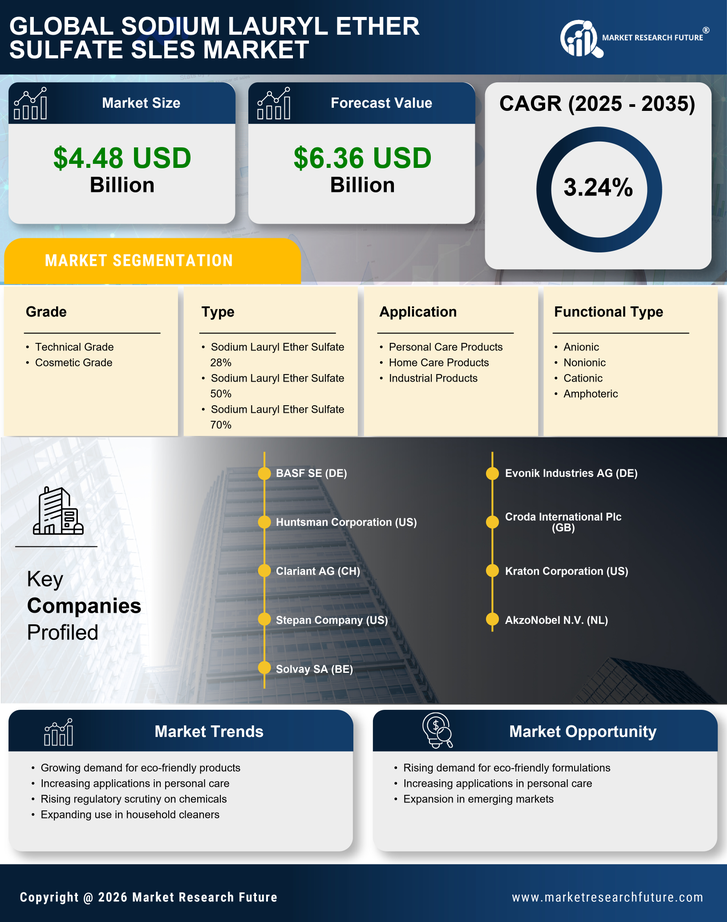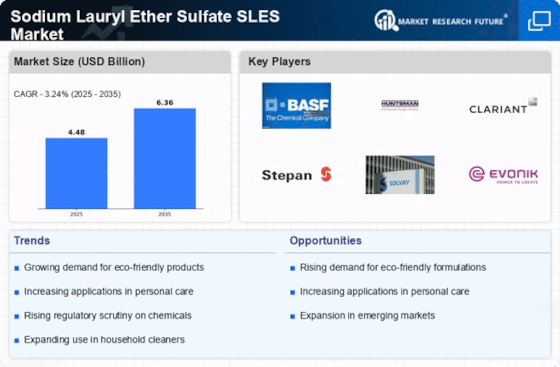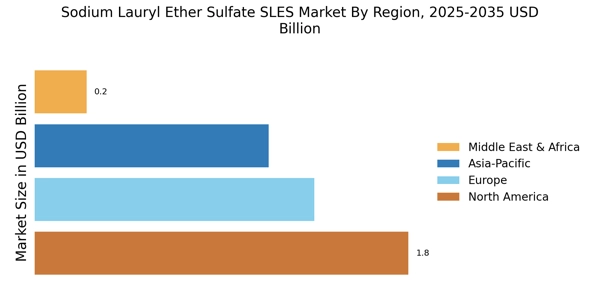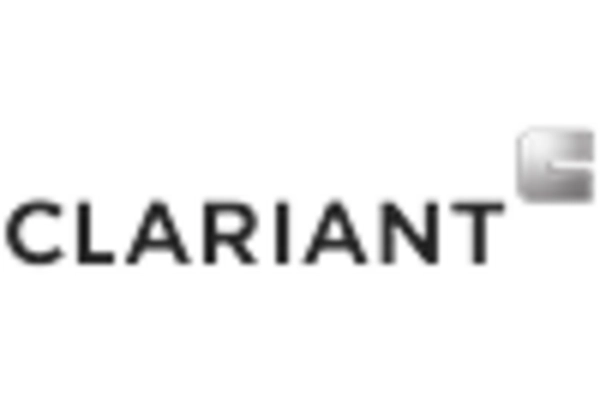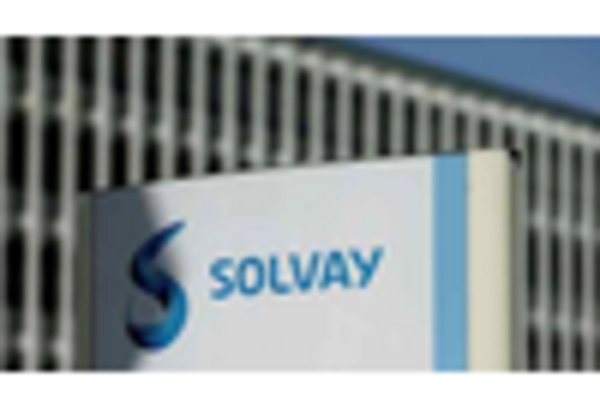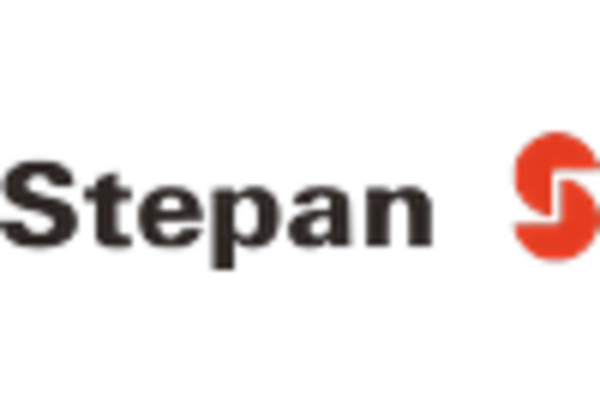Growth in Household Cleaning Products
The Sodium Lauryl Ether Sulfate Market is witnessing a significant expansion in the household cleaning products sector. The increasing emphasis on cleanliness and sanitation in domestic environments has led to a heightened demand for effective cleaning agents. SLES, known for its excellent foaming and emulsifying properties, is widely utilized in various household cleaners, including surface cleaners, laundry detergents, and dishwashing liquids. Market analysis suggests that the household cleaning segment is projected to grow at a rate of around 4% annually, driven by consumer preferences for products that deliver superior cleaning performance. This growth trajectory indicates a robust opportunity for the Sodium Lauryl Ether Sulfate Market to capitalize on the rising trend of cleanliness and hygiene in households.
Innovation in Formulation Technologies
The Sodium Lauryl Ether Sulfate Market is benefiting from ongoing innovations in formulation technologies. Manufacturers are increasingly focusing on developing advanced formulations that enhance the performance of SLES in various applications. This includes the creation of sulfate-free alternatives and formulations that cater to sensitive skin, which are gaining traction among consumers. The introduction of multifunctional products that combine cleansing with moisturizing properties is also on the rise. As a result, the market is likely to see a shift towards more sophisticated and consumer-friendly products, which could potentially increase the overall market size. The emphasis on innovation is expected to drive the Sodium Lauryl Ether Sulfate Market forward, as companies strive to meet evolving consumer demands.
Rising Demand for Personal Care Products
The Sodium Lauryl Ether Sulfate Market is experiencing a notable increase in demand for personal care products, particularly in the segments of shampoos, body washes, and facial cleansers. This surge is attributed to the growing consumer awareness regarding hygiene and personal grooming. According to recent data, the personal care segment accounts for a substantial share of the SLES market, with projections indicating a compound annual growth rate of approximately 5% over the next few years. As consumers increasingly seek effective yet gentle cleansing agents, SLES is favored for its surfactant properties, making it a preferred choice among manufacturers. This trend is likely to bolster the Sodium Lauryl Ether Sulfate Market, as brands innovate to meet consumer preferences for quality and efficacy.
Expanding Applications in Industrial Sectors
The Sodium Lauryl Ether Sulfate Market is experiencing an expansion in applications across various industrial sectors, including textiles, agriculture, and oil recovery. In the textile industry, SLES is utilized as a wetting agent and emulsifier, enhancing the dyeing and finishing processes. In agriculture, it serves as a surfactant in pesticide formulations, improving the efficacy of active ingredients. The oil recovery sector also employs SLES for its ability to enhance oil extraction processes. This diversification of applications is likely to contribute to the growth of the Sodium Lauryl Ether Sulfate Market, as industries seek effective and versatile chemical solutions to improve their operational efficiencies.
Consumer Preference for Eco-Friendly Products
The Sodium Lauryl Ether Sulfate Market is increasingly influenced by consumer preferences for eco-friendly and sustainable products. As environmental awareness rises, consumers are gravitating towards products that are perceived as safe for both health and the environment. SLES, being biodegradable and derived from natural sources, aligns well with these consumer values. Market trends indicate that products labeled as eco-friendly are witnessing higher sales, prompting manufacturers to reformulate their offerings to meet these expectations. This shift towards sustainability is likely to drive innovation within the Sodium Lauryl Ether Sulfate Market, as companies strive to develop greener alternatives that appeal to environmentally conscious consumers.
